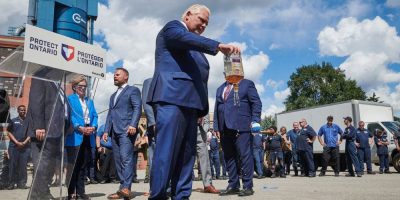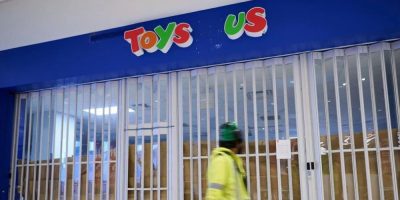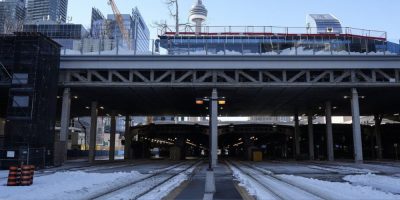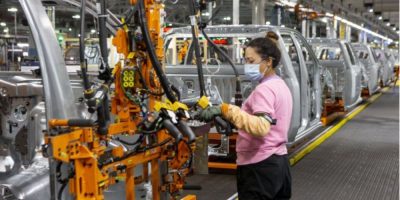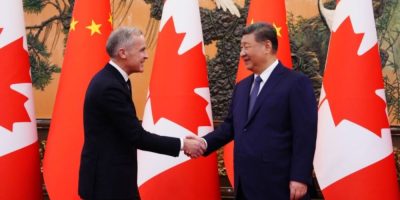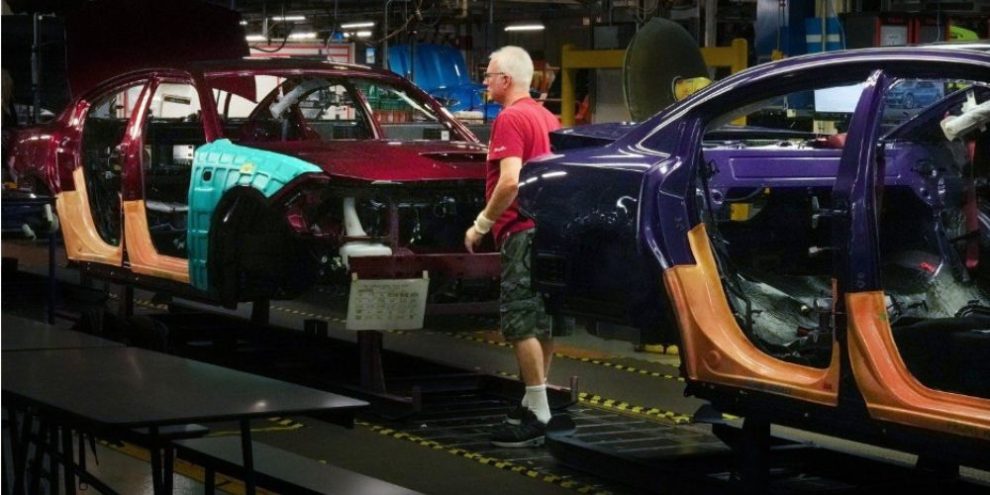
Updated October 15, 2025 @ 9:12pm
The federal government threatened legal action after carmaker Stellantis said it will move planned vehicle production from its plant in Brampton, Ont., to Illinois, sparking fears about the future of Canada's auto industry as U.S. President Donald Trump tries to undo 60 years of integration.
Industry Minister Melanie Joly expressed her "extreme concern" about the move in a letter Wednesday to the company where she threatened legal action.
"The business decision to move the mandate of the Jeep Compass is unacceptable," she said in the letter, a copy of which was obtained by The Canadian Press.
She said the company had agreed to maintain its full Canadian footprint, including Brampton operations, in exchange for substantial financial support over decades. It refers to the 2009 government bailouts of the auto sector during the financial crisis when Stellantis was on "the brink of bankruptcy."
"Anything short of fulfilling that commitment will be considered as default."
Stellantis said in a statement that it has plans for the Brampton plant, but didn't provide any details on what those might be.
The company also said it continues to invest in Canada, including adding a third shift to the Windsor Assembly Plant where it produces the Chrysler Pacifica minivan and Dodge Charger.
"Canada is very important to us," said Stellantis spokeswoman LouAnn Gosselin in a statement.
Ontario Premier Doug Ford said the company has told him they're going to keep the plant, but that reopening will be delayed as they figure out which vehicle they'll produce there.
He said he's told the company how disappointed he is in the decision, and that the company won't be getting any more funding until it fulfils its obligations.
"I'm not going to give them a penny," Ford said Wednesday.
Stellantis announced the decision as part of a US$13-billion spending commitment in the U.S. that will see it boost production in the country by 50 per cent over the next four years.
The decision has left the 3,000 workers at the Brampton plant in limbo as they wait to hear future plans.
Joly said the company will have to extend supports for those workers until at least 2027 in light of the latest decision.
Opposition Leader Pierre Poilievre said the government was failing to protect autoworkers.
"After promising to 'negotiate a win' with President Trump and giving billions in handouts to the company, the elbows-down Prime Minister got no job guarantees for autoworkers," he said in a statement.
Barrie's News Delivered To Your Inbox
By submitting this form, you are consenting to receive marketing emails from: Central Ontario Broadcasting, 431 Huronia Rd, Barrie, Ontario, CA, https://www.cobroadcasting.com. You can revoke your consent to receive emails at any time by using the SafeUnsubscribe® link, found at the bottom of every email. Emails are serviced by Constant Contact
Prime Minister Mark Carney met with Trump in Washington last week, where the president showed no signs of relenting on tariffs. He said the U.S. wants to make its own steel and autos and warned that Canada and the U.S. have "natural" business conflicts.
"Americans don't want to buy cars that are made in Canada," Trump said. "It's a tough situation because we want to make our cars here. At the same time, we want Canada to do well making cars. So, we're working on formulas and I think we'll get there."
Joly said on Wednesday the federal government will work to hold Stellantis to account.
"We will fight for these jobs," she told reporters following a fireside chat in Fredericton.
"I'll continue to work night and day on this issue."
The loss of a committed vehicle makes the outlook for Brampton more dire, and the need to find new partners beyond U.S. automakers more pressing, said Greig Mordue, associate professor at McMaster University's W Booth School of Engineering.
"Any reasonable person looking at the status of Brampton could probably look at it and say, that's in tough shape, and frankly, yesterday's announcement made it even tougher."
Production at the plant ended in late December 2023 and retooling began in January 2024 to prepare for the Jeep Compass. After Trump started rolling out tariffs earlier this year, the company halted work on retooling in February.
The latest decision by Stellantis follows on several moves by Detroit automakers to delay or cut back production in Canada, as tariffs come in and electric vehicle adoption has been slower than expected.
General Motors idled its CAMI assembly plant that produces EV delivery trucks in Ingersoll, Ont., for months this year and is moving to a single shift there. The company is also set to cut a shift at its Oshawa plant in January. Meanwhile, Ford last year shifted plans for its Oakville assembly plant that will see production delayed.
"The reality is those U.S. automakers have almost abandoned Canada. I mean, they've got a plant in Windsor, and a declining plant in Oshawa making vehicles. That's it," said Mordue.
Given the current situation, he said it's time Canada look to potentially try and attract rising auto producers, especially from China, if it wants to maintain the sector long-term.
Unifor national president Lana Payne said the federal government needs to do all it can to defend the Brampton plant, the auto sector and other industries feeling the weight of tariffs.
"Targeted Canadian industries are already experiencing the financial impact and job losses due to Trump’s sustained attacks,” she said in a statement.
"Stellantis cannot be allowed to renege on its commitments to Canadian workers, and governments cannot stand by while our jobs are shifted to the United States."
Flavio Volpe, head of the Automotive Parts Manufacturers' Association, said parts suppliers that have invested hundreds of millions of dollars to supply the Brampton plant only found out about the decision through the news.
He said the cowardly decision also puts in doubt the jobs of some 10,000 workers at parts suppliers are also relying on Brampton getting a product.
"It's not OK," said Volpe.
"Canadians have been committed to investing in the auto sector because they trust these companies to follow through.”
He said he doesn't put much stock in the company's vague commitments for Brampton.
“I’ve been around long enough to know a plan and a car are two different things.”
While the company says it remains committed to Canada, the decision dilutes the potential of the Brampton plant going forward, said Sam Fiorani, vice-president of global vehicle forecasting at AutoForecast Solutions.
"A move like this falls right into the hands of the Trump administration's desire to move product to the U.S."
He said that given the company's announcement to build so many other vehicles in the U.S., it looks like the Windsor plant is still at least needed.
The wider concern is the fragmenting of the North American auto industry will weaken the sectors in all three countries, said Fiorani.
"Canada, U.S., and Mexico made a great team on the global market, and none of those countries is large enough or strong enough to compete with the likes of China and the EU."
He said that if the U.S. keeps moving forward with shutting out Canada's auto sector, then it might make sense to look to partner with Chinese manufacturers that have been looking at Canada for over a decade.
"If the U.S. turns Canada into its enemy, the automotive industry of Canada will look elsewhere for partners."
This report by The Canadian Press was first published Oct. 15, 2025.
